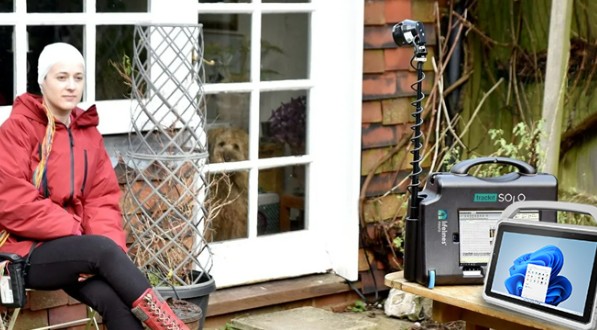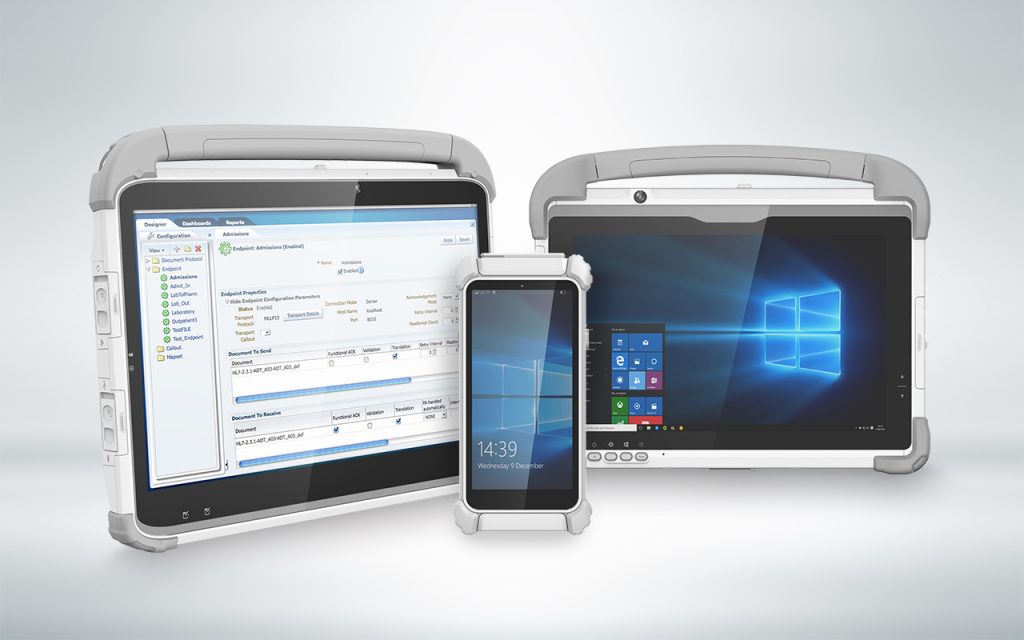
When it comes to neurological diagnostics, where ambulatory video EEG (electroencephalography) systems help monitor brain activity outside traditional hospital settings, having equipment that is reliable, portable, and built to last is a must. An electroencephalography test called ambulatory EEG, sometimes referred to as AMB EEG or AEEG, uses a portable electroencephalograph (EEG) device.
Compared to an EEG performed at a single doctor’s visit, this newly developed test enables patients to wear the EEG equipment for a longer period—usually 24 hours or more—and provides a more thorough and accurate measurement of the electrical activity of the brain. A wearable electrocardiogram (ECG) device to record cardiac activity could additionally also be a part of it.
The Growing Importance of Ambulatory Video EEG
A game-changing innovation crucial to AMB EEG is rugged medical tablets like DT Research’s 302MD, which provides a durable and efficient solution for real-time EEG data collection and analysis.
Traditional EEG systems often require patients to remain stationary in clinical settings, limiting the ability to monitor brain activity during daily routines. Ambulatory video EEG solutions address this limitation by allowing continuous monitoring in various environments, providing a more comprehensive understanding of neurological conditions. The challenge lies in ensuring that the equipment used is both patient-friendly and robust enough to withstand different settings.
Lifelines Neuro’s Quest for an Ideal Solution
Lifelines Neuro, a company specializing in neurodiagnostic solutions, recognized the need for a cost-effective, reliable, and user-friendly EEG video system. Their goal was to develop a lightweight, robust, and tamper-proof video system that delivers high-quality video while recording EEG data. They sought to move away from bulky, multi-component kits that were cumbersome and time-consuming to set up. Lifelines Neuro selected DT Research’s 302MD medical tablet for its size, specifications, and consistent form factor. This choice allowed them to design their solution with confidence, ensuring stability and reducing the need for frequent design changes.
Key Features of the 302MD Rugged Medical Tablet
The 302MD tablet is designed with features that make it particularly suited for medical applications:
- Portability: Weighing just 3 lbs (1.32 kg) and featuring a 10.1″ LED-backlit, sunlight-readable touchscreen, the tablet is easy to handle in various medical settings.
- Durability: With an IP65 rating for water and dust resistance and MIL-STD-810H certification for shock and vibration protection, the 302MD is built to withstand harsh environments.
- Performance: Equipped with Intel® Core™ i5 or i7 processors and up to 32GB of RAM, the tablet ensures smooth operation of complex medical software.
- Battery Life: The hot-swappable battery design allows for continuous operation, a critical feature for extended EEG monitoring sessions.
- Antimicrobial Enclosure: The tablet’s enclosure has an antimicrobial coating, making it suitable for clean-sensitive medical environments.
Enhancing Patient Care and Operational Efficiency
Integrating the 302MD tablet into ambulatory video EEG solutions offers several benefits:
- Improved Patient Experience: The tablet’s portability and user-friendly design minimize patient interference and discomfort during monitoring.
- Streamlined Workflow: The ease of setup and reliable performance reduces the workload on medical professionals, allowing them to focus more on patient care.
- Data Security: With NIST compliant BIOS and optional data capture modules like 2D barcode scanners and RFID readers, the medical tablet ensures secure and efficient data management.
Neurological diagnostics has advanced significantly with the integration of robust medical tablets, such as DT Research’s 302MD, into ambulatory video EEG solutions. These tablets overcome the limitations of conventional EEG systems by providing portability, reliability, and superior performance that optimizes patient care and operational effectiveness. Such technology is projected to become essential in modern medical diagnostics.




